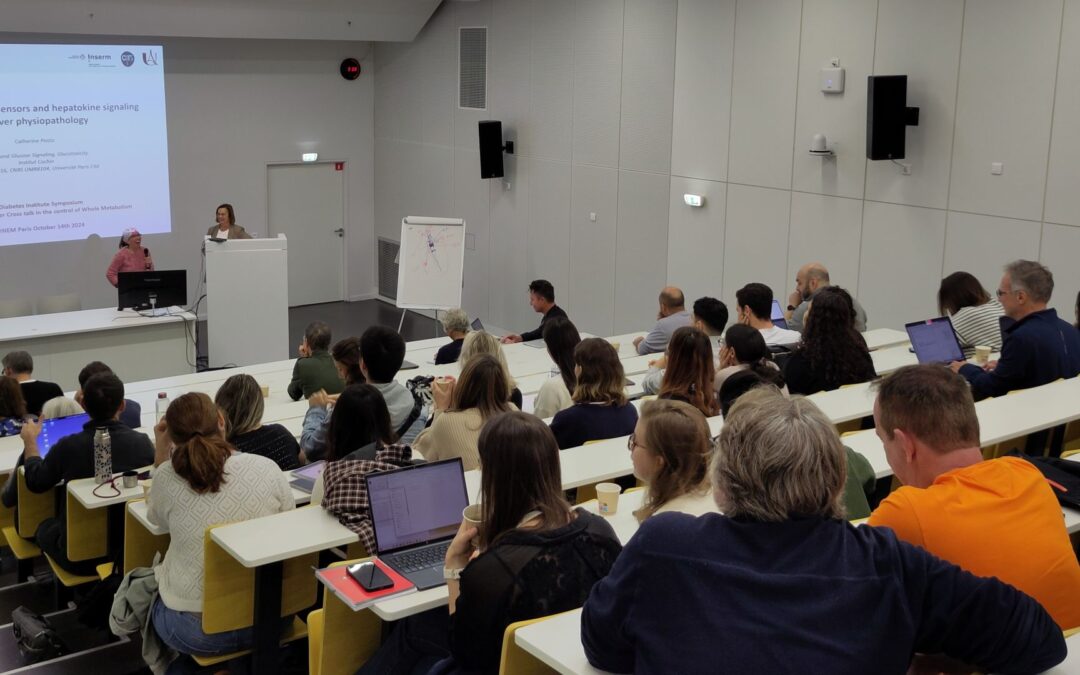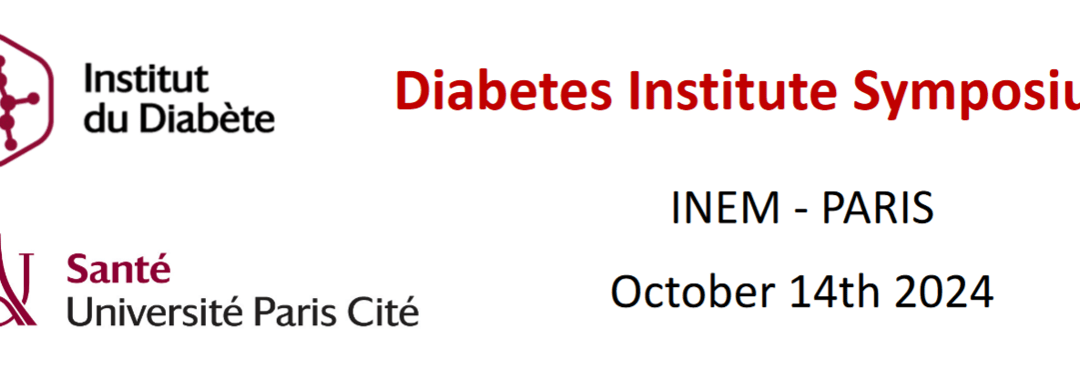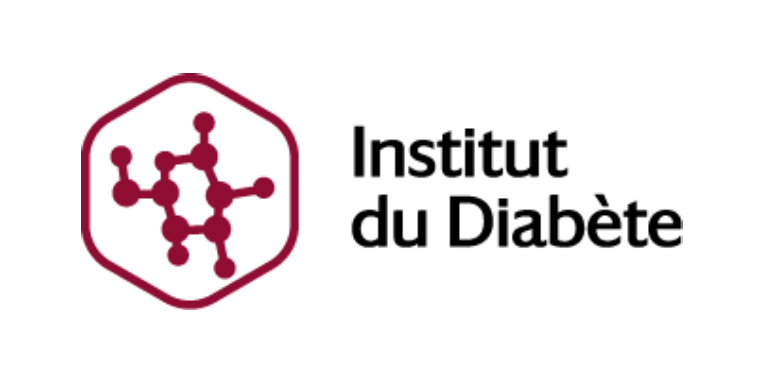Insulin signaling, glucose sensing and glucotoxicity
The main interest of our group is to characterize the molecular and biochemical mechanisms underlying the control of intermediary metabolism by nutrients and hormonal signals in cell types that are important for the regulation of energy homeostasis under both physiological and pathophysiological conditions (type 2 diabetes, glucotoxicity, NAFLD/NASH, inflammatory diseases).
PI: Catherine POSTIC
We are performing metabolic and transcriptional studies of the regulatory role of the insulin receptor (IR), the key enzyme of O-GlcNAcylation (OGT) and the glucose-sensitive transcription factor ChREBP in cells important for glucose-sensing and/or energy homeostasis, such as hepatocytes, intestinal and immune cells. Our scientific goal is to unravel how these proteins, not only by controlling glucose flux and/or insulin sensitivity, but also the release of systemic proteins (hepatokines, cytokines, gastro-intestinal peptides), modulate the inter-organ dialogue to tightly control metabolic homeostasis. To do so, we take advantage of unique genetic mouse models developed by our group, in which our targets have been deleted in a cell-specific manner. Whenever possible, we aim at translating our studies to humans through various collaborations with clinicians (RHU-Quid NASH, Tissue bank BioDIGE).
Our major objectives are therefore to:
– study the relationships between gut insulin resistance, intestinal barrier function and inflammation
– investigate the role of OGT in hepatic and inflammatory diseases
– explore how ChREBP affects the inter-organ network to control energy homeostasis
Read more

Post Doctoral Position
Fully funded 2-year Post-doctoral position in the team of Dr. Ralf JOCKERS, at Institute Cochin

2024 Scientific Annual Day of the Diabetes institute
On Monday, October 14th, the annual Diabetes Institute Scientific Day took place, bringing together around 100 participants at the INEM. Opening of the Annual Scientific Day of the Diabetes Institute Maude LE GALL - Co-Director of the institute (left) Catherine POSTIC...

Diabetes Institute scientific day
The overall goal of this Diabetes Institute scientific day is to provide the most important and up-to-date research in the field of metabolism made at University Paris Cité. The workshop will focus on understanding the recent progress in adipose tissue and liver biology including metabolic and inflammatory processes in the control of the energy homeostasis. Special emphasis will be done to highlight the importance of the organ crosstalk and how signaling pathways in one tissue could affect the metabolism in other tissue.

Les jeunes de l’IHM seront à l’EASD
L’IHM Diabète est heureux d’aider les jeunes à participer à l’EASD en leur attribuant une bourse de 1000€
Rendez-vous en Septembre à Madrid !
